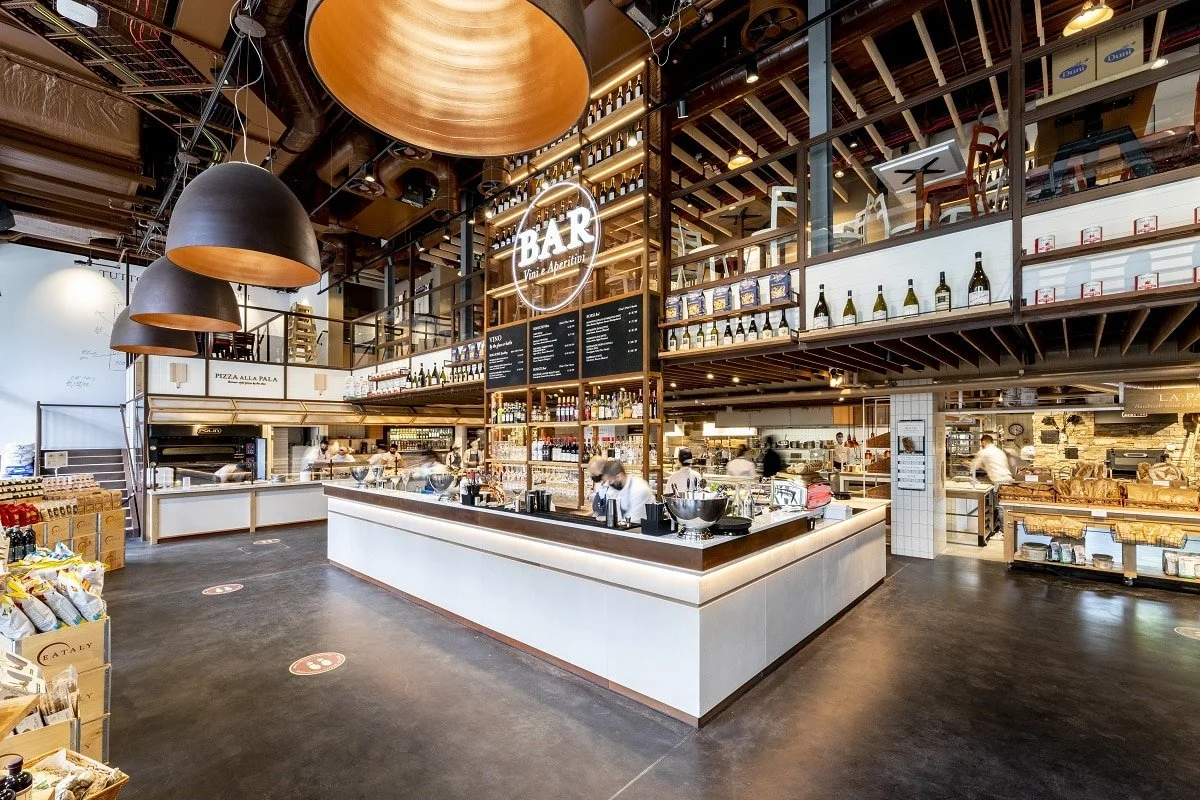WHY IMMERSIVE RETAIL EXPERIENCES ARE IMPORTANT.
In the rapidly evolving landscape of the 21st century, entertainment and retail spaces have emerged as key catalysts for economic growth and revitalisation. These spaces are no longer confined to traditional malls and shopping centres; they now encompass a diverse range of immersive experiences, including theme parks, experiential stores, pop-up events, and entertainment districts. This article explores how entertainment and retail spaces have become vital components of the new economy, driving innovation, consumer engagement, and economic prosperity.
Enhancing the Consumer Experience
The new economy is characterised by a shift in consumer preferences from passive consumption to active engagement. Entertainment and retail spaces have adapted to this trend by providing experiential environments that go beyond traditional shopping. These spaces create immersive worlds where consumers can engage with brands, products, and entertainment in a holistic manner. Whether it's a virtual reality gaming centre, a themed restaurant, or a live performance venue, these experiences captivate consumers and provide lasting memories.
Economic Impact and Job Creation
Entertainment and retail spaces are major contributors to economic growth, job creation, and revenue generation. The establishment of such spaces often requires significant investments, leading to construction projects, infrastructure development, and employment opportunities. Theme parks, for example, not only attract visitors but also provide jobs for local communities, from operations and maintenance to hospitality and customer service. Similarly, retail spaces create employment opportunities across various sectors, such as retail associates, visual merchandisers, and event planners.
Cultural and Social Revitalisation
Entertainment and retail spaces have the power to transform and revitalise neighbourhoods, cities, and regions. By offering unique experiences and attracting visitors, these spaces become cultural and social hubs. Entertainment districts, like Times Square in New York City or Shibuya in Tokyo, draw people from all walks of life, fostering a sense of community and vibrancy. They serve as venues for concerts, festivals, and other cultural events, creating opportunities for local artists, musicians, and performers to showcase their talents.
Driving Innovation and Collaboration
The integration of technology and entertainment in retail spaces has led to innovative business models and collaborations. Augmented reality (AR) and virtual reality (VR) have enabled retailers to create immersive shopping experiences, allowing customers to virtually try on clothes or visualise products in their own space. Collaboration between retailers and entertainment companies has given rise to unique concepts, such as stores that feature interactive displays, live performances, and product demonstrations. These innovations not only attract customers but also encourage other industries to explore new possibilities at the intersection of entertainment and retail.
E-commerce Integration
The rise of e-commerce has disrupted traditional retail, prompting physical stores to evolve and adapt. Entertainment and retail spaces have leveraged the power of e-commerce by integrating online and offline experiences. Many brick-and-mortar stores now offer seamless omnichannel experiences, allowing customers to browse and purchase products both in-store and online. Additionally, entertainment spaces provide opportunities for online retailers to showcase their products and engage with customers in a tangible and immersive setting. This convergence of e-commerce and entertainment has created a mutually beneficial ecosystem that drives sales and customer loyalty.
Conclusion
In the new economy, entertainment and retail spaces have become essential components for driving economic growth, job creation, and cultural revitalisation. These spaces have evolved to meet the changing needs and preferences of consumers, offering immersive experiences that go beyond traditional shopping. By integrating technology, fostering collaboration, and embracing e-commerce, entertainment and retail spaces have become dynamic and innovative environments. As they continue to evolve, these spaces will play an increasingly crucial role in shaping the future of the economy, driving innovation, and enhancing the overall consumer experience.
We’ve helped a number of brands and retailers ‘show-up’ and innovate at the point of purchase in retail. Follow the link below to discuss your needs.


